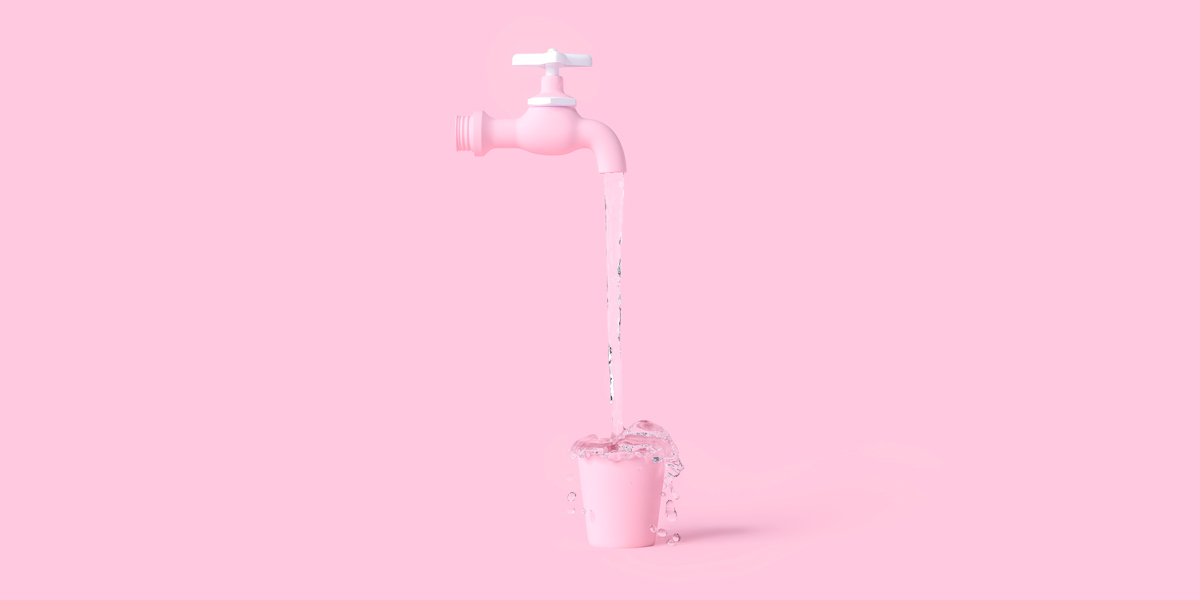Getting wet- and what to do when it doesn't happen

It’s happened to the best of us. You’re in bed with someone, willing yourself to get wet – but you feel dry as a desert down there. What on earth? Well, it’s a super common problem, so don’t sweat it. 40% of women report not getting wet enough during sex. That’s why we’ve put together a handy guide for you on wetness- and how to help it along without beating yourself up for it.
What is wetness?
In the first place, what is vaginal wetness? It’s nothing more or less than the lubrication of your vagina. The glands in your cervix produce moisture in order to protect your vagina from tearing, and to keep it clean. Which means that wetness is not necessarily related to how aroused you are – despite the common understanding. You’re not necessarily turned on every time you’re wet, and you can be very turned on without experiencing wetness- this is called arousal non-concordance.
Okay, so why am I not getting wet?
There are any number of reasons why you may not feel wet enough during sex. You might be on medication that makes getting wet difficult, or maybe you’re simply allergic to the soap you’re using (many soaps contain irritants that make it difficult to get wet). Maybe you’re not producing enough estrogen (which can be remedied with a quick visit to your doctor). Then, of course, there are the psychological and physiological reasons you’re not getting wet – maybe your partner isn’t doing the right things, or maybe you’re in your head and too embarrassed to let go and feel true arousal.
What can I do if I’m not wet?
There are a few relatively simple things you can try out if you're struggling to lubricate.
1. More foreplay.
Ask your partner to spend extra time on you – kissing your neck, nipples, and fingering you gently down there. You need foreplay in order to feel properly aroused: this will help you become wet enough for penetration. Don’t be afraid to take it slow, and try out every sexy thing you can think of that will help you loosen up.
2. Practice mindfulness.
You might want to try out meditation, or the practice of mindfulness. The goal is to help you feel more connected to your body, and more present during the moment. A few simple meditation exercises go a long way toward helping you feel in touch with your body (which is the key to both wetness and orgasm).
3. Stress-relieving activities.
When you’re stressed, your body produces hormones that interfere with lubrication. Which means that busy, perennially-stressed out women may have a much harder time getting wet. In order to fight this, make sure you have time each day to do stress-relieving activities (like exercise, for instance). That way, when it’s time for sex, you can relax and enjoy it fully without remembering your upcoming performance evaluation at work.
4. Address any shame you might be feeling about sex.
If you have any guilt or shame about what you’re doing – or if you feel anxiety about your body’s natural functions and needs- it might be time to address these with a qualified therapist. Remember, your body takes cues from your mind: you need to have a healthy attitude to sex before you can have a healthy sex life.
5. Lube.
If you’ve tried everything else and still report dryness- definitely buy lube. There’s absolutely zero shame in bringing lube into the bedroom: it's a staple, after all.
There are plenty of fun lubes on the market that you can try out. You can choose from water-based lubes, or silicone-based lubes: feel free to experiment and see what works best for you (of course, avoid lubes that you might be allergic to). Good luck, and have fun bb!
/Shutterstock



